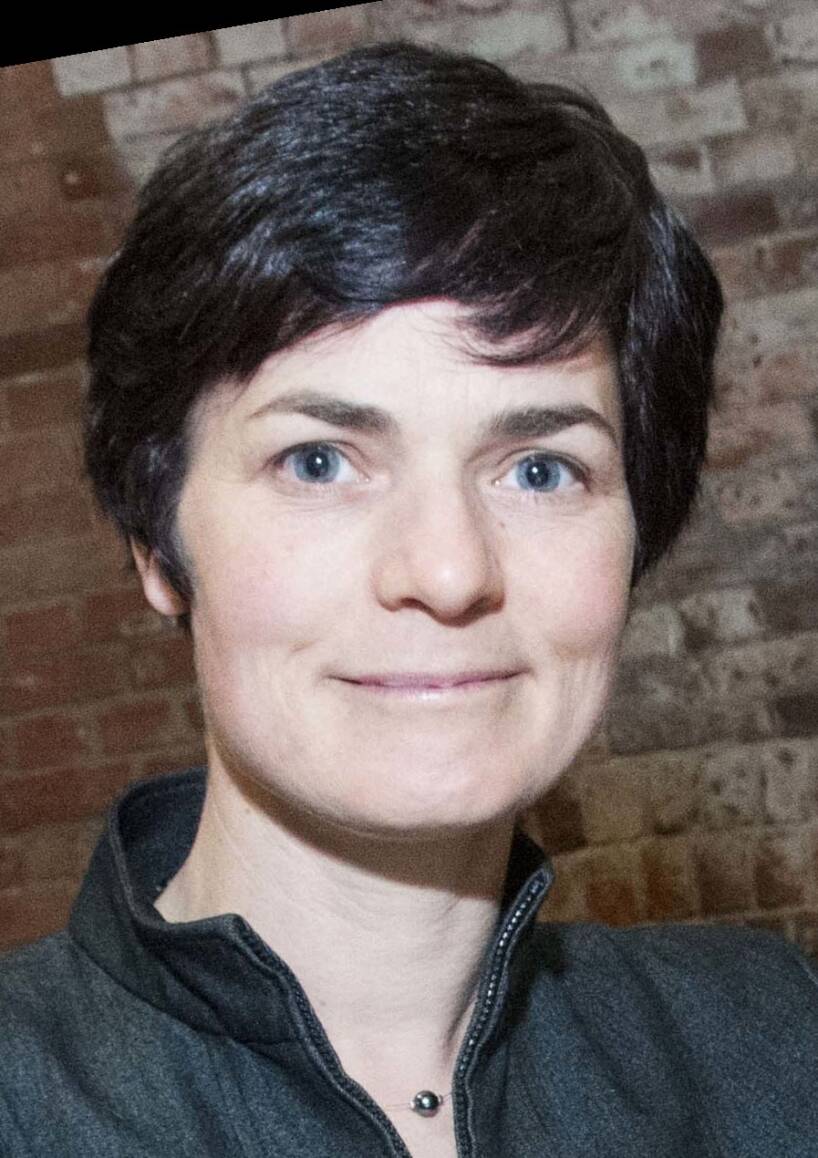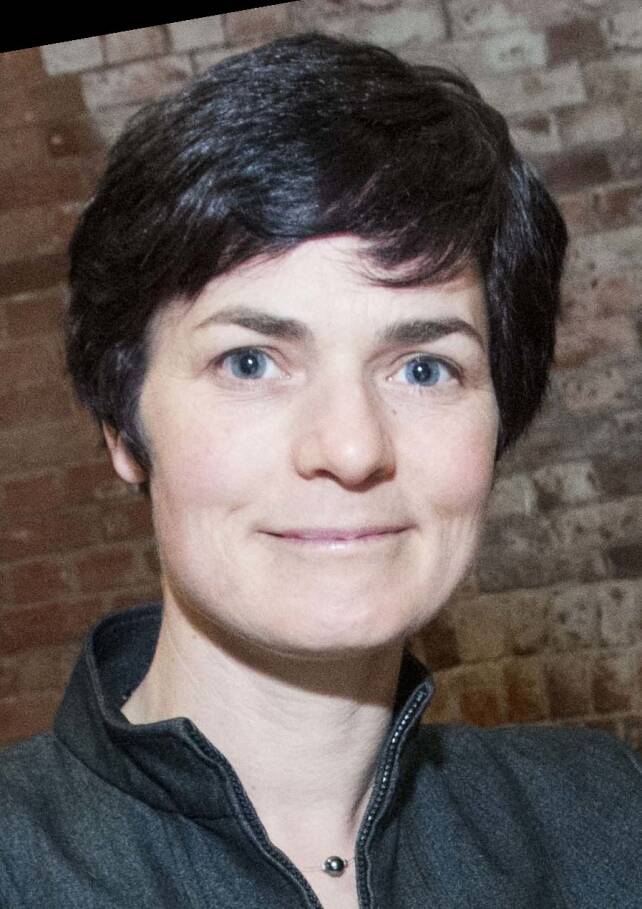The long road
“One of the positive things coming out of this COVID-19 situation is that we’ve seen changes within industry and business happen in weeks. People have gotten used to having to jump quickly to change the system.” These kinds of changes take time, however. “When you create systemic change, even the biggest player out there can’t do it alone. The whole system has to shift.” A monumental task, to be sure, but one MacArthur strongly believes needs to happen. And in the years since she gave up her record breaking career in sailing to start her foundation it has begun to feel like the world is also coming to that realization. That the system wants to change. It won’t be easy. It won’t be quick. But it will be worth it.
Source: McKinsey & Company, Greenbiz, Marketing Society, The Times and Ellen MacArthur Foundation
Strength in diversity
“The circular economy is diverse and distributed. It involves many different players from big corporations to individuals. Imagine a forest with plants of all sizes, from massive trees to microscopic fungi. All of those plants play an important role in the health of the forest. Take one away and the rest crumbles. The circular economy is the same.” Rather than the increasingly top heavy pyramid of capitalism, the strength of the circular economy lies in a more equitable and diverse distribution. In the current moment, with an ongoing global health crisis and a growing chorus of voices fighting for social justice, MacArthur’s vision seems a perfect fit for the Great Reset, as the World Economic Forum calls it. A chance to do better following the political, economic, and social disruptions caused by the COVID-19 crisis.
Circular economy
MacArthur’s foundation was founded in 2010, well before the concept of a circular economy had gained traction. For the past ten years the Ellen MacArthur Foundation has been ahead of the pack — the foundation’s Twitter handle is @circulareconomy, for example — and doing what they can to make sure the rest of the world can follow. Working with leading companies like Danone and Unilever to accelerate the transition, as well as publishing dozens of insights, research, and case studies. The circular economy, designed as it is to eliminate waste and pollution and regenerate natural systems, is a seismic shift from the linear economy we’ve thrived in at the cost of those natural systems. The transition will be arduous, painful even, but at the same time enormously profitable. Not only for our wallets, with an estimated 550 billion dollar reduction in health care costs associated with the food sector, but also for our planet, with a 48% possible reduction in CO2 emissions by 2030.
Resources are finite
“When you set off around the world, you take with you everything that you need for your survival. So for three months, you’re on a boat with everything that you have. You know that you only have so much food, you only have so much diesel, and you become incredibly connected to those resources that you use.” And when you’re alone surrounded by water and thousands of nautical miles from the nearest resupply, you have to make your resources last. “No experience in my life could have given me a better understanding of the word ‘finite’”.
When you zoom out, the same idea applies to the earth at large. Floating in the void at an unknown and unfathomable distance to the next planet that could allow us to thrive. Making sure our resources don’t run out seems like the sensible thing to do.
© Bryan Ledgard
Ellen MacArthur

How Ellen MacArthur is leading the world towards a circular economy
“The system needs to change”
Extraordinary circumstances can shift our perspective. There are few circumstances as extraordinary as sailing around the world on your own. No wonder then, that Dame Ellen MacArthur returned from her record setting circumnavigation of the globe with a different view of the world. The real wonder lies in what she did with it. She retired from professional racing and founded the Ellen MacArthur Foundation, which has since grown into a global leader when it comes to the transition towards a circular economy.
Jelle Steenbergen Xiao Er Kong
interview
20 min
"The system needs to change"
Walter Smith & Daniel Humm
Source: McKinsey & Company, Greenbiz, Marketing Society, The Times and Ellen MacArthur Foundation
The long road
“One of the positive things coming out of this COVID-19 situation is that we’ve seen changes within industry and business happen in weeks. People have gotten used to having to jump quickly to change the system.” These kinds of changes take time, however. “When you create systemic change, even the biggest player out there can’t do it alone. The whole system has to shift.” A monumental task, to be sure, but one MacArthur strongly believes needs to happen. And in the years since she gave up her record breaking career in sailing to start her foundation it has begun to feel like the world is also coming to that realization. That the system wants to change. It won’t be easy. It won’t be quick. But it will be worth it.
Strength in diversity
“The circular economy is diverse and distributed. It involves many different players from big corporations to individuals. Imagine a forest with plants of all sizes, from massive trees to microscopic fungi. All of those plants play an important role in the health of the forest. Take one away and the rest crumbles. The circular economy is the same.” Rather than the increasingly top heavy pyramid of capitalism, the strength of the circular economy lies in a more equitable and diverse distribution. In the current moment, with an ongoing global health crisis and a growing chorus of voices fighting for social justice, MacArthur’s vision seems a perfect fit for the Great Reset, as the World Economic Forum calls it. A chance to do better following the political, economic, and social disruptions caused by the COVID-19 crisis.
Circular economy
MacArthur’s foundation was founded in 2010, well before the concept of a circular economy had gained traction. For the past ten years the Ellen MacArthur Foundation has been ahead of the pack — the foundation’s Twitter handle is @circulareconomy, for example — and doing what they can to make sure the rest of the world can follow. Working with leading companies like Danone and Unilever to accelerate the transition, as well as publishing dozens of insights, research, and case studies. The circular economy, designed as it is to eliminate waste and pollution and regenerate natural systems, is a seismic shift from the linear economy we’ve thrived in at the cost of those natural systems. The transition will be arduous, painful even, but at the same time enormously profitable. Not only for our wallets, with an estimated 550 billion dollar reduction in health care costs associated with the food sector, but also for our planet, with a 48% possible reduction in CO2 emissions by 2030.
Resources are finite
“When you set off around the world, you take with you everything that you need for your survival. So for three months, you’re on a boat with everything that you have. You know that you only have so much food, you only have so much diesel, and you become incredibly connected to those resources that you use.” And when you’re alone surrounded by water and thousands of nautical miles from the nearest resupply, you have to make your resources last. “No experience in my life could have given me a better understanding of the word ‘finite’”.
When you zoom out, the same idea applies to the earth at large. Floating in the void at an unknown and unfathomable distance to the next planet that could allow us to thrive. Making sure our resources don’t run out seems like the sensible thing to do.
Extraordinary circumstances can shift our perspective. There are few circumstances as extraordinary as sailing around the world on your own. No wonder then, that Dame Ellen MacArthur returned from her record setting circumnavigation of the globe with a different view of the world. The real wonder lies in what she did with it. She retired from professional racing and founded the Ellen MacArthur Foundation, which has since grown into a global leader when it comes to the transition towards a circular economy.
Jelle Steenbergen Xiao Er Kong
© Bryan Ledgard
Ellen MacArthur

How Ellen MacArthur is leading the world towards a circular economy
“The system needs to change”
20 min









